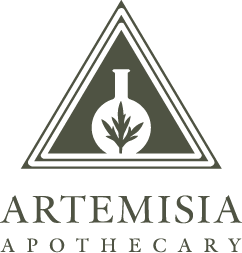Anxiety, Depression & The Gut
Like many people, I am often convinced that our global culture has become pathological. The evidence is there for all to see, but most people arrive at this feeling by a gut feeling.
But what if this pathological culture is reflected in the culture in our guts too? What then Sweet Friend?
Culture is not just something that surrounds us, it's also within us too. We now know that we are seeing a pathological narrowing of the human pro biome’s natural diversity. It’s called “dysbiotic drift” and it’s a global change in the internal culture of human beings. I can’t help but feel however that this isn’t separate from our pathological global culture and that they are both feeding into each other in a downward spiral.
Sometimes it seems the whole world is becoming anxious and depressed.
Although we all know that our gut bacteria affect our brain, it’s good to remember just how profound that connection is. Stephen Collins, a gastroenterology researcher at McMaster University in Hamilton, Ontario, has found that strains of two bacteria, lactobacillus and bifidobacterium, reduce anxiety behaviour in mice. He and his colleagues collected gut bacteria from a strain of mice prone to anxious behaviour, and then transplanted these microbes into another strain inclined to be calm.
The result: The tranquil animals appeared to become anxious. Surprise surprise we humans also carry strains of these bacteria in their guts.
Similar studies have been repeated with depression showing that depressed rats do better under stressful situations when they have these microbes in their gut - the results even equalled the effect of antidepressants which also helped.
Photo by Adrian Swancar on UnsplashScientists have finally acknowledged the connections between gut microbes and autism and several recent studies have found that autistic people’s microbiome differs significantly from control groups. The California Institute of Technology microbiologist Sarkis Mazmanian has focused on a common species called Bacteroides fragilis, which is seen in smaller quantities in some children with autism. In studies on autistic mice the introduction of B. Fragilis improved their behaviour significantly: They became less anxious, communicated more with other mice, and showed less repetitive behaviour.
Although we can indeed change the global culture by shifting our internal gut culture we also need to be willing to work in the other direction. It’s not all the bacteria’s fault right? In order to do this the approach is somewhat similar with a small amount of ‘pioneer species’ humans helping to shift the ecosystem to a more balanced and less anxious place.
So go forth my global probiotic brethren and be the culture you have been waiting for - Gaia’s colon is calling you!
With Heart,
Jimi





